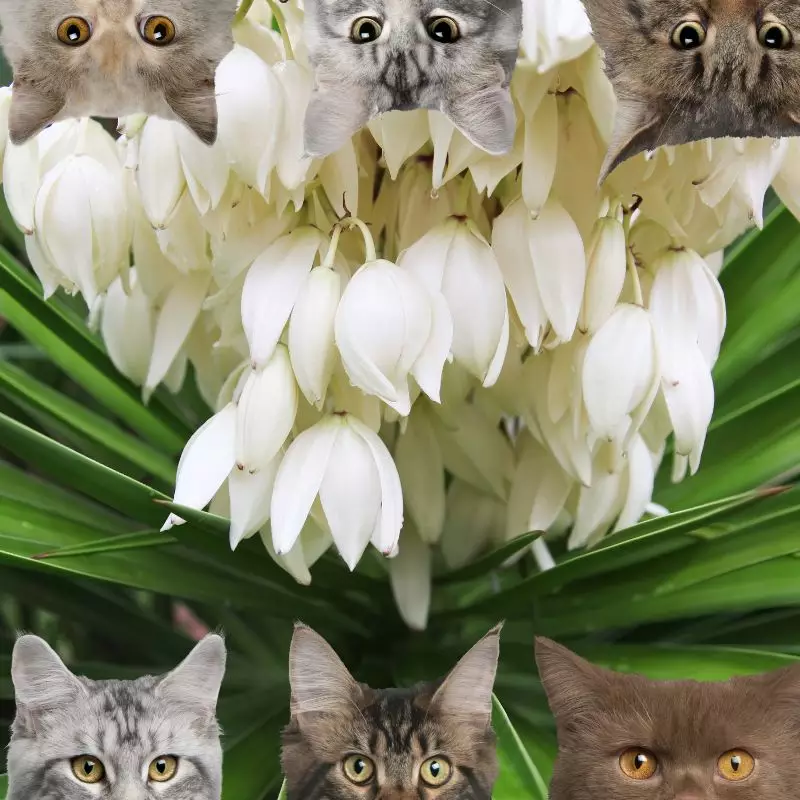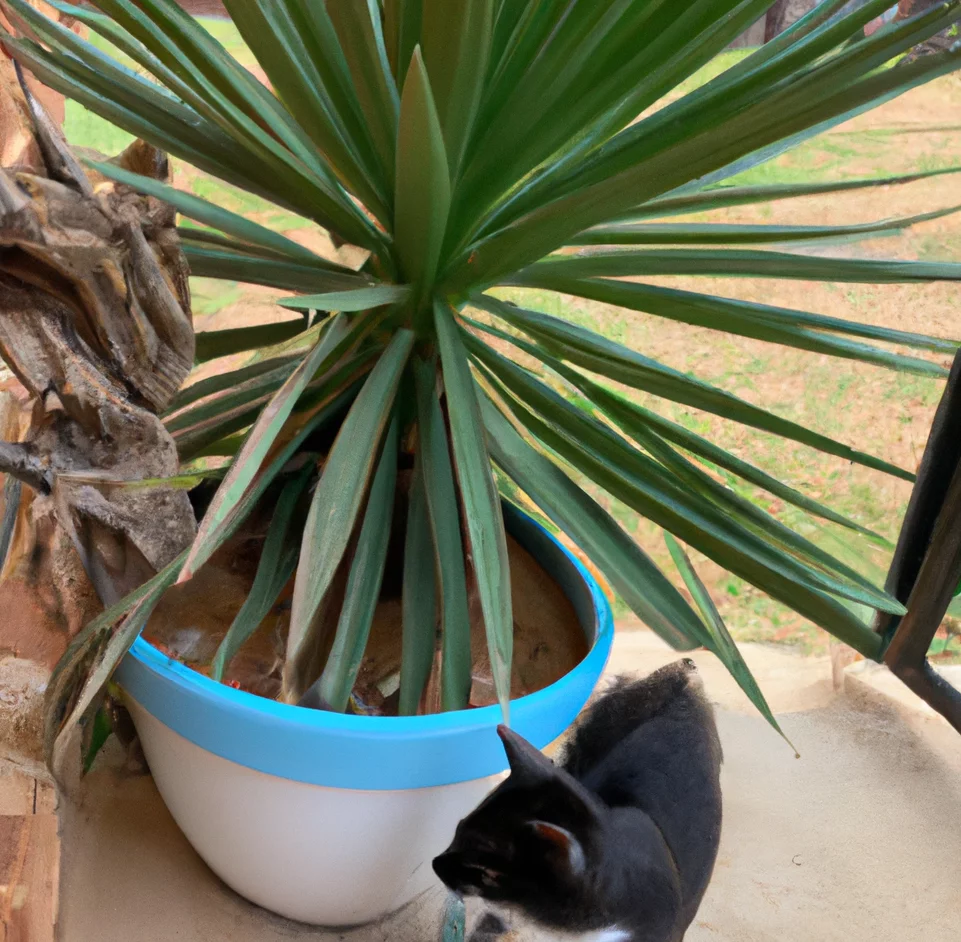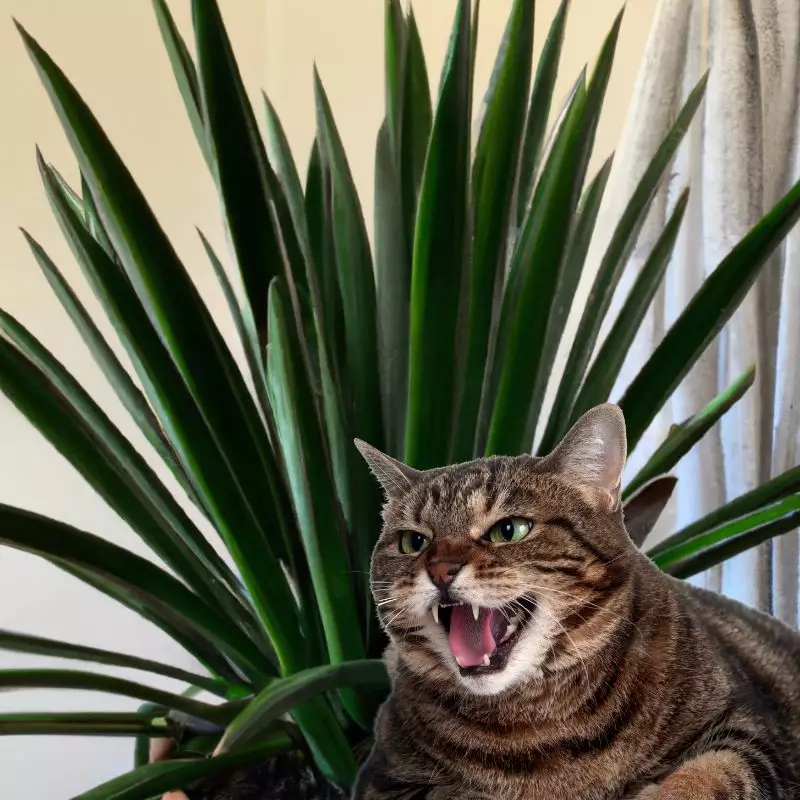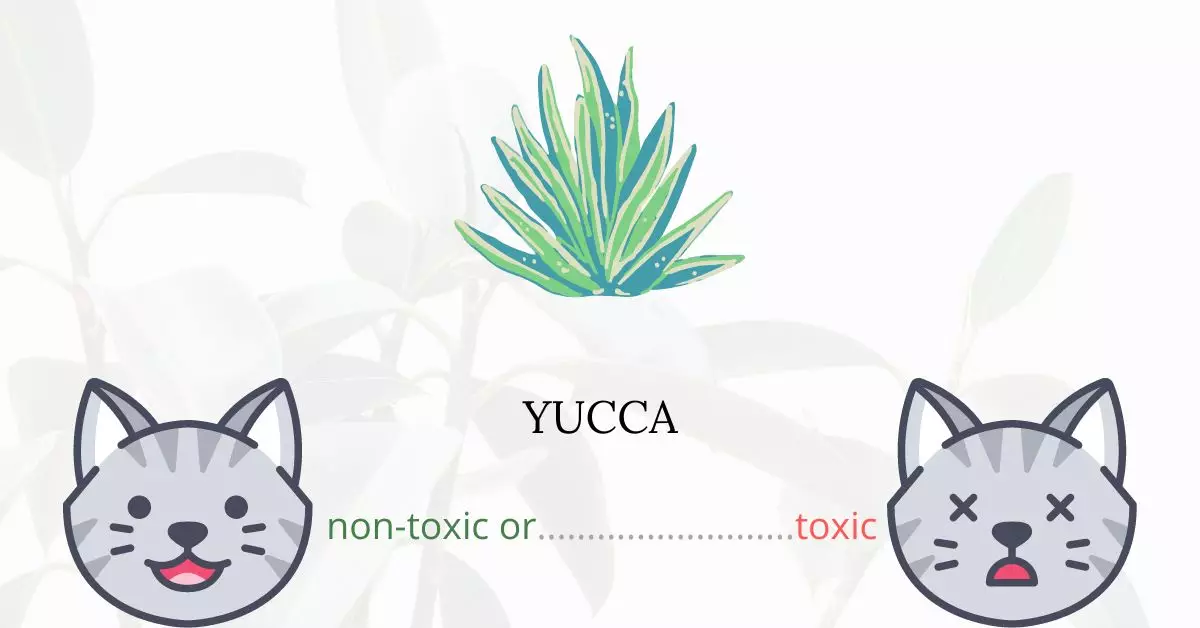Yucca, widely recognized for its ornamental value, does indeed pose a threat to cats due to its toxicity. The presence of saponins within the plant renders it hazardous, causing potential gastrointestinal distress and various poisoning symptoms if consumed in substantial amounts by felines.
To ensure the reliability and accuracy of this information, this article has been meticulously composed in collaboration with a team of experienced Doctors of Veterinary Medicine (DVMs). Their extensive knowledge and insights allow us to offer precise and current information regarding the potential risks that different plants, such as Yucca, can have on cats. Additionally, extensive research has been conducted utilizing high-authority sources like ASPCA and PetMD to further substantiate every piece of information provided about each plant. Through combined professional insights and reputable resources, we aim to deliver a thorough understanding of Yucca’s effects on cats, enabling you to make informed decisions for the safety and well-being of your feline friends.
Clinical Signs of Yucca Poisoning in Cats

When cats come into contact with or consume the Yucca plant, it can lead to a myriad of clinical signs due to the presence of saponins, which are natural chemicals within the plant known for their foaming properties, designed to protect the plant from insects and fungi.
- Drooling: Yucca can induce excessive salivation in cats, often a preliminary response to nausea or gastrointestinal irritation, stemming from the saponins interacting with the mucous membranes in the mouth and stomach.
- Vomiting: The ingestion of Yucca can lead to vomiting as the body’s natural response to expel the toxic saponins, and it can be a sign of irritation or damage to the stomach lining.
- Diarrhea: The saponins can also irritate the intestinal lining, leading to diarrhea, as the body attempts to eliminate the toxins swiftly.
- Weakness: Cats may exhibit signs of weakness due to the body’s response to the toxicity, impacting the overall physical condition and energy levels of the cat.
- Incoordination: The neurotoxic effects of Yucca can impact the cat’s motor skills, leading to incoordination or difficulty in maintaining balance, a sign of the body’s neurological response to the saponins.
- Dilated Pupils: Yucca can cause pupils to dilate as a reaction to the plant’s toxins affecting the nervous system, signaling potential distress or discomfort in the cat.
Each of these clinical signs is a manifestation of the cat’s physiological response to the toxic components of the Yucca plant, and immediate veterinary attention is imperative to manage the symptoms and prevent further complications if a cat is suspected to have ingested or been in contact with Yucca.
First Aid and Treatment of Yucca Poisoning in Cats

The standard treatment for yucca plant poisoning in cats includes the administration of activated charcoal, the start of intravenous hydration therapy, and the administration of anti-emetics.
Activated charcoal can absorb undigested toxins and saponins in your cat’s stomach. Intravenous fluid therapy helps to rectify fluid imbalances, especially in dehydrated cats.
Antiemetics will reduce vomiting in cats that vomit on a regular basis. To reduce skin irritation, topical ointments or other drugs may be utilized.
In severe cases of yucca poisoning produced by large amounts ingested, your veterinarian will recommend treatment according to the symptoms.
Recovery from Yucca Poisoning in Cats

Cats with mild yucca plant poisoning usually recover entirely within a few hours after treatment. In mild cases of yucca plant poisoning, follow-up appointments are usually unnecessary.
At home, make sure your cat has a quiet and comfortable space to rest in. Give ample fluids to aid in his or her recovery.
Prevention of Yucca Poisoning in Cats
If you are growing yucca at home, it is advisable to remove it completely to avoid another episode of poisoning. Keeping your cats indoors is also the best method of preventing poisoning because, in this way, it will limit the chances of exposure to yucca plants and other poisonous plants in your surroundings.
If you love plants but have cats at home, check out these lists:





